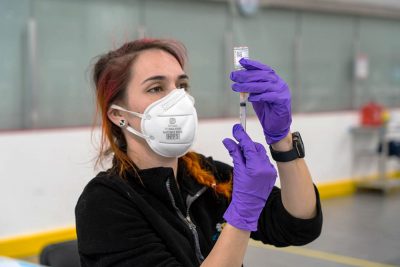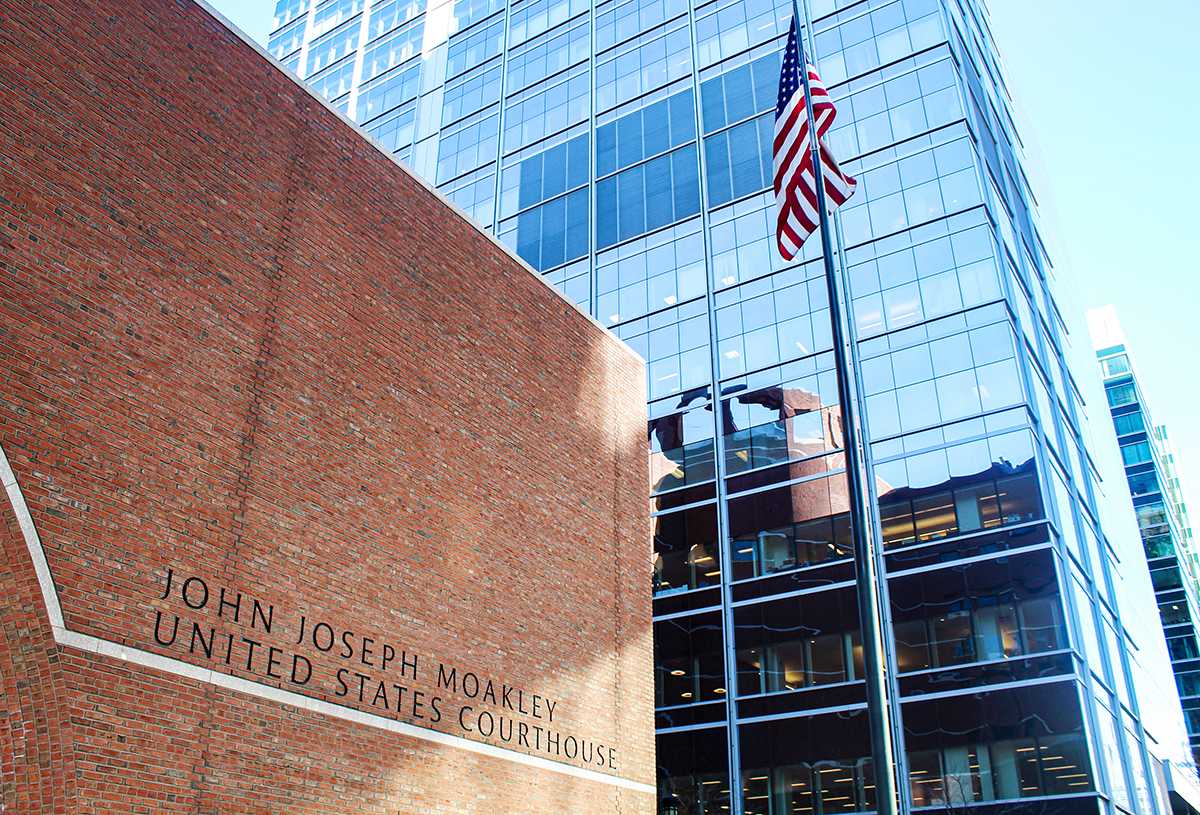
Two days after the decision to lift the mask mandate on public transportation, the Boston Public Health Commission released a statement citing a 65% increase in COVID-19 cases over the past two weeks.
According to the Massachusetts Department of Public Health, COVID-19 cases spiked recently, hitting a high of 2,583 confirmed single-day cases on April 11.
The statement from the BPHC urged residents to continue abiding by measures such as testing and staying home if unwell, as well as renewing its indoor mask recommendation in order to prevent further spread of the virus.
“It’s also important to stay up to date on your vaccinations,” Bisola Ojikutu, executive director of the BPHC, stated in the press release. “These precautions are how we protect the progress we’ve made in our community.”
The BPHC also noted the importance of booster shots, and added that they protect against “waning immunity.”
Jacob Bor, an assistant professor of global health and epidemiology at Boston University, said vaccinations are important in order to safeguard against varying rates of COVID-19 throughout different communities.
“So it’s a real concern that these disparities in vaccine booster coverage will translate into health inequities during this current surge,” Bor said.
A group of researchers published an article on April 11 examining the rollout of COVID-19 vaccines and booster shots in Massachusetts. The data suggests there are still prominent inequalities in vaccine distribution across racial, economic, age and education groups in the state.
“The booster is really essential when it comes to preventing morbidity and mortality with the omicron period,” Bor, who co-authored the report, said. “People who are vaccinated and boosted will probably be just fine, and people who are not may have higher rates of poor outcomes.”
The report also found that 77% of residents ages 20-39 received a primary vaccine-series and only 35% percent of them were covered by a booster.
Paul Beninger, a professor of public health and community medicine at Tufts Medical School, said the statistics hadn’t come as a surprise to him.
“People felt like they were comfortable,” Beninger said. “So the drive to get the booster has always seemed to have been less pressure, more elective, less essential. It always seemed to be secondary unless of course you fall into any of the risk groups.”
According to the report, education was a stronger indicator of coverage than race or wealth.
“Across the state, zip codes with higher education levels had much higher vaccination and booster coverage than others,” Bor said.
As of last Tuesday, masks are no longer required on the MBTA or at Logan International Airport. Following a federal judge’s decision to overturn national mask mandates on public transportation — almost a week after the Centers for Disease Control and Prevention extended the mandate until May 3 — President Joe Biden has stated publicly that he plans to seek to appeal the ruling.
“I think now lifting the mask mandate gives people more room to exercise their own decisions,” George Tang, a Boston city resident, said. “Now is a good time to open up.”
Quincy Stuart, another Boston resident, said lifting the mask mandate — especially on public transportation — makes him feel “uncomfortable.”
“I still would feel a bit scared because again we still are in an age where there is a pandemic,” Stuart said.
Bor said if a city is experiencing a rise in COVID-19 cases, they should consider their own public health measures.
“I think it’s — from a public health perspective — a no-brainer that [mandates] should be on the table as one of the options,” Bor said. “I would love to see our city take a stand and see what happens.”
Although public health restrictions are relaxing, Bor added vaccines are an important measure to keep in mind.
“I think part of the normalization of COVID in our lives needs to be the normalization of vaccines,” Bor said. “It should just be integrated into our lives.”
City Associate Editor Phoebe Chen contributed to the reporting for this article.



























































































































